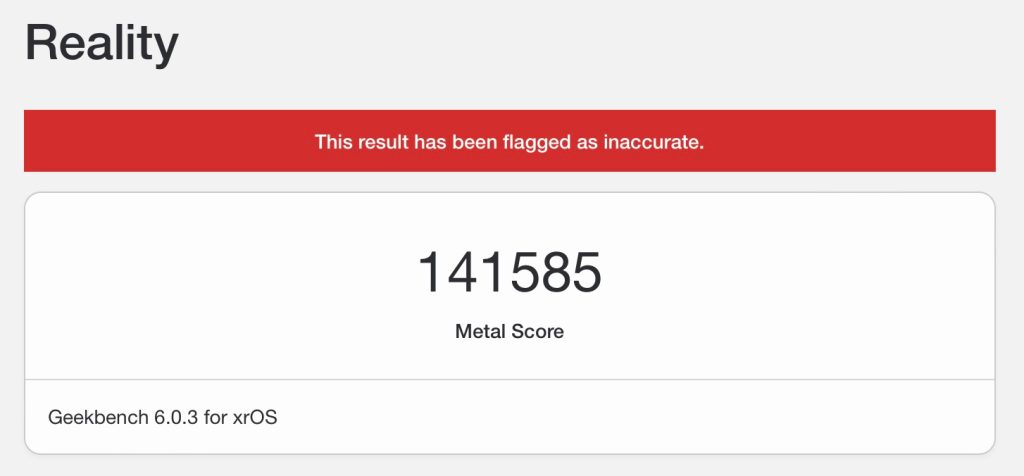
Ahead of Apple’s WWDC 2023 keynote on Monday, the last-minute leaks and rumors are in full swing – and that includes faked ones. With that in mind, you might see a Geekbench result that purports to be from Apple’s Reality Pro headset making the rounds this morning. Just a little bit of research (and common sense), however, quickly shows that it’s faked.
The Geekbench listing went live on the Geekbench website late on Thursday night, at which point 9to5Mac did some digging and quickly deduced that it was bogus; we didn’t cover it right away so as not to draw attention to what we thought was obviously untrue. On Friday morning, however, the rumor gained traction on Twitter and elsewhere, so we’ve now decided to cover it to point out that it’s faked.
According to the faked Geekbench result, the Reality Pro headset is powered by an “Apple X1” chip that features a 12-core processor split into 8 cores and 4 cores, likely referring to the split between performance and efficiency cores. The test result also suggests that the headset will feature.
The results of the test claim that the headset clocked in with a Metal Score of 141,585, which would be an impressive number if it were true, but it’s not. The rumor has already gained traction on Twitter and other tech-focused websites, but here’s how to know that it’s fake.
The biggest tell is that all rumors suggest the Reality Pro headset’s performance will feature performance that is on par with the base M2 chip. The Geekbench results that purport to be for the Reality Pro headset show performance that is nearly identical to the M2 Max chip in the MacBook Pro. This simply isn’t true. The headset will offer impressive performance, sure, but not M2 Max-level performance. In fact, the score is identical to that of the 16-inch MacBook Pro with an M2 Max chip and 64GB chip.
And finally, there simply isn’t a Geekbench app for Apple’s xrOS platform. There are no third-party apps for xrOS – the platform isn’t even available to third-party developers yet. That should have been an obvious sign, but for some people, it apparently wasn’t.

The fact is: It’s incredibly easy to create a fake Geekbench result. In many cases, Geekbench itself is good at spotting these fake results. Shortly after the Reality Pro headset “results” gained traction on Twitter, Geekbench updated its website with a disclaimer: “This result has been flagged as inaccurate.”
And before it goes viral, there’s also an Apple Silicon Mac Pro Geekbench result floating around. That test result is also made-up.
Be careful out there, kids.
Apple’s annual Worldwide Developer Conference keynote address will take place on Monday, June 5, at 10 a.m. PT/1 p.m. ET. Keep it locked to 9to5Mac for comprehensive coverage leading up to the event. We’ll also be onsite for WWDC 2023 all week long.
Follow Chance: Twitter, Instagram, and Mastodon
FTC: We use income earning auto affiliate links. More.




Comments